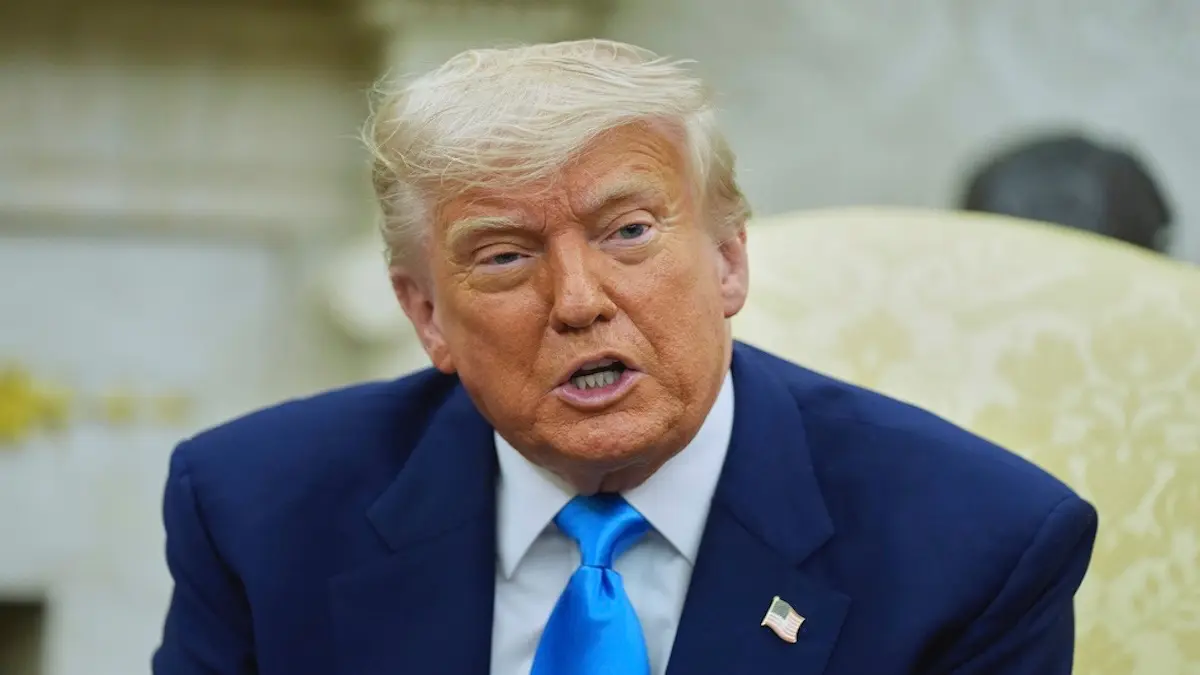Updated 29 May 2025 at 08:39 IST
Huge Blow to Donald Trump: Court Hammers US President’s Drastic Trade Tariff Plan, Calls Use of Emergency Powers Unconstitutional
A US trade court has blocked former President Donald Trump's broad tariffs on imports, ruling he exceeded his authority under the Constitution. The decision challenges Trump’s use of emergency powers for trade and could derail his tariff-based trade strategy. The administration has already filed a notice of appeal.
- Republic Business
- 4 min read

In a landmark ruling, the US Court of International Trade on Wednesday blocked former President Donald Trump’s tariffs from taking effect, declaring that he overstepped his authority by imposing broad duties on imports from countries with which the United States has trade deficits.
The three-judge panel found that the US Constitution grants Congress, not the president, exclusive power to regulate commerce with foreign nations. Trump's reliance on the International Emergency Economic Powers Act (IEEPA) to justify the tariffs was deemed impermissible by the court.
"The court does not pass upon the wisdom or likely effectiveness of the President's use of tariffs as leverage. That use is impermissible not because it is unwise or ineffective, but because [federal law] does not allow it," the panel said in its decision.
White House Pushes Back, Appeals Ruling
Moments after the ruling, the Trump administration filed a notice of appeal and questioned the court's authority. Decisions made by the Manhattan-based Court of International Trade—tasked with handling disputes over international trade and customs laws—can be appealed to the US Court of Appeals for the Federal Circuit in Washington, D.C., and ultimately to the US Supreme Court.
A White House spokesperson defended the tariffs, describing trade deficits as a serious national concern.
"A national emergency that has decimated American communities, left our workers behind, and weakened our defence industrial base – facts that the court did not dispute," said Kush Desai, a spokesperson for the administration.
"It is not for unelected judges to decide how to properly address a national emergency," Desai added.
Financial Markets Welcome the Decision
Financial markets reacted positively to the court's decision. The US dollar rallied strongly against major currencies, including the euro, yen, and Swiss franc. Meanwhile, Wall Street futures climbed and equities across Asian markets also showed gains, reflecting investor relief over the blow to Trump’s aggressive tariff strategy.
Tariff Strategy Faces Major Setback
The ruling undermines Trump’s key trade policy aimed at reducing the U.S. trade deficit, which stands at $1.2 trillion in goods. The tariffs, ranging from 10% to 54%, were imposed under IEEPA—an act historically used to sanction foreign enemies or freeze assets during emergencies. Trump is the first US president to invoke IEEPA for imposing tariffs.
Without these emergency tariffs, the administration may now be forced to use traditional, slower avenues such as trade investigations under existing trade laws to achieve similar outcomes.
Lawsuits Spark Court Challenge
The ruling stems from two lawsuits: one brought by the nonpartisan Liberty Justice Center on behalf of five small U.S. businesses that import goods, and another by 13 US states. The plaintiffs include a New York-based wine and spirits importer and a Virginia manufacturer of educational kits and musical instruments, among others.
The businesses argued that the tariffs would cripple their operations by raising costs and disrupting supply chains.
"There is no question here of narrowly tailored relief; if the challenged Tariff Orders are unlawful as to Plaintiffs they are unlawful as to all," the court wrote.
At least five other legal challenges to the tariffs are currently pending.
States Join Legal Fight Against Tariffs
Leading one of the lawsuits, Oregon Attorney General Dan Rayfield, a Democrat, hailed the court's decision.
"This ruling reaffirms that our laws matter, and that trade decisions can’t be made on the president’s whim," Rayfield said.
He further described the tariffs as "unlawful, reckless and economically devastating."
Trump’s National Emergency Justification Questioned
Trump had declared a national emergency in early April, citing the trade deficit as justification for a blanket 10% tariff on all imports, with steeper rates for countries like China that run large trade surpluses with the US
Just a week after imposing them, the administration paused many of the country-specific tariffs. On May 12, it announced a temporary reduction in tariffs on China while working toward a longer-term trade deal. Both countries agreed to a mutual tariff reduction for at least 90 days.
Read More
Stocks to Watch Today: IndusInd Bank, IRCTC & SAIL In Focus On May 29
Justice Department Defends Presidential Powers
The US Department of Justice had urged the court to dismiss the lawsuits, arguing that the plaintiffs had not yet suffered harm from tariffs they had not paid. It also maintained that only Congress, not private businesses, can contest a national emergency declared under IEEPA.
Despite these defenses, the court sided with the plaintiffs, setting a precedent that could reshape the boundaries of presidential power in trade matters.
Advertisement
Published By : Gunjan Rajput
Published On: 29 May 2025 at 08:39 IST
